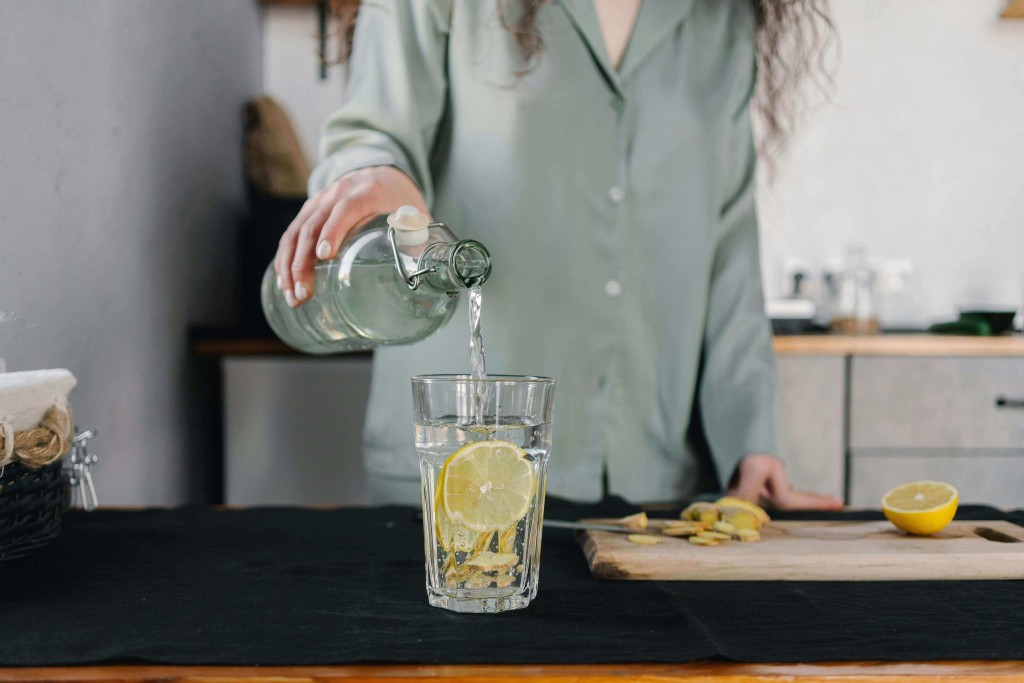
3 Steps to Improve Your Skin Through Nutrition
You may recall learning that our skin is actually one of our largest organs with a very important job. Not only does it cover and protect our body, it can make hormones from the sun, it can help achieve temperature regulation and it can help eliminate toxins from our bodies. When it comes to achieving radiant, healthy skin, what you put on your plate can be just as important as what you put on your skin. Nutrition plays a crucial role in maintaining and enhancing skin health. Here are three effective steps to improve your skin through nutrition:
Step 1: Hydrate from the Inside Out
Hydration is the cornerstone of healthy skin. Water helps maintain the elasticity and suppleness of the skin, making it look more vibrant and youthful. When your skin is well-hydrated, it's less prone to dryness, flakiness, and dullness.
- Drink Plenty of Water: Aim to drink at least 8 glasses (about 2 litres) of water a day. Water helps flush out toxins, supports skin hydration, and aids in maintaining the skin's elasticity.
- Eat Water-Rich Foods: Incorporate water-rich foods like cucumbers, tomatoes, watermelons, and oranges into your diet. These foods not only hydrate your body but also provide essential vitamins and minerals that promote skin health.
- Limit Dehydrating Beverages: Minimise the intake of caffeinated and alcoholic beverages, as they can dehydrate your skin. If you do consume these, consider complimenting them with extra water.
Step 2: Focus on Antioxidant-Rich Foods
Antioxidants are powerful compounds that protect your skin from damage caused by free radicals, which are unstable molecules that can lead to premature ageing and skin damage. Incorporating antioxidant-rich foods into your diet may help combat oxidative stress and promote healthier skin.
- Berries: Blueberries, strawberries, and raspberries are packed with antioxidants like vitamin C and flavonoids. Vitamin C is crucial for collagen production, which keeps your skin firm and youthful.
- Leafy Greens: Spinach, kale, and other leafy greens are rich in vitamins A, C, and E, as well as minerals like iron and magnesium. These nutrients may help repair and protect your skin from damage.
- Nuts and Seeds: Almonds, walnuts, and chia seeds provide a good dose of vitamin E, a potent antioxidant that may help protect your skin from UV damage and maintain its moisture levels.
- Green Tea/Matcha: Rich in polyphenols, green tea has anti-inflammatory and antioxidant properties that may help reduce redness and irritation while protecting your skin from sun damage.
Step 3: Incorporate Healthy Fats
Healthy fats are essential for maintaining the lipid barrier of your skin, which keeps it moisturised and protected. Omega-3 and omega-6 fatty acids are particularly beneficial for skin health, helping to reduce inflammation and improve skin texture.
- Cold Water Oily Fish: Salmon, mackerel, and sardines are excellent sources of omega-3 fatty acids. These healthy fats may help keep your skin supple and hydrated, reducing the risk of dryness and inflammation.
- Avocados: Avocados are rich in monounsaturated fats, which help keep your skin moisturised and flexible. They also contain vitamins E and C, which are vital for skin health.
- Olive Oil: Good quality Extra virgin olive oil is loaded with antioxidants and healthy fats that may nourish your skin from the inside out. Use it as a salad dressing or drizzle it over your dishes to reap its benefits.
- Nuts and Seeds: In addition to their antioxidant content, nuts and seeds like flaxseeds and chia seeds are rich in omega-3 fatty acids, which may support healthy cell membranes and maintain skin hydration.
Achieving healthy, glowing skin is not just about the products you apply externally; it's also about nourishing your skin from within. By following these three steps—staying hydrated, consuming antioxidant-rich foods, and incorporating healthy fats into your diet—you may significantly improve your skin's health and appearance. Remember, a vibrant whole foods eating style coupled with proper skin care can work wonders in giving you the radiant skin you've always desired. I highly recommend taking a closer look at the products you are using on your skin. If you are unsure, please reach out to someone who can guide you in a toxin-free approach to skin care.

Sally Munro is a Registered Naturopathic Nutritional Therapist, Yoga Teacher and Director of Simply Swim Aberdeen swim school. Working with clients of all ages and stages of life, Sally focuses on the simple steps you can take towards improving your health and wellbeing.
website: www.sallymunro.co.uk
email: hello@sallymunro.co.uk
Instagram: @salthewellnesswarrior
Facebook: Simply Swim Aberdeen